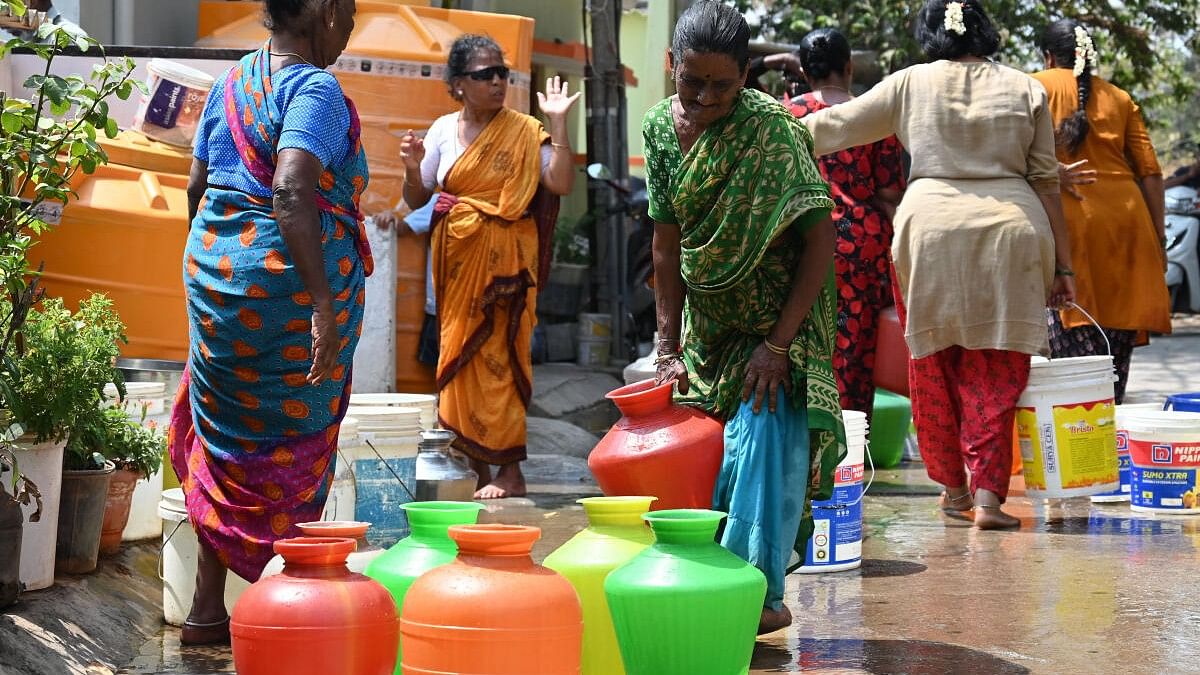
People gather to collect water from a tanker due to the ongoing water crisis, at Bangarappanagar in Bengaluru.
Credit: DH Photo
Taking a cue from Bruhat Bengaluru Mahanagara Palike (BBMP), cash-strapped Bangalore Water Supply and Sewerage Board (BWSSB) is now looking at attracting Corporate Social Responsibility (CSR) funds to take up implementation of Rain Water Harvesting (RWH) systems at a large scale in public spaces, ensuring prevention of sewage entry into lakes, and such other activities.
“We know that the BWSSB runs completely on the tariff collected from the consumers and we do not have the bandwidth to take up new projects to improve water security. We have learnt that many companies are willing to contribute to the good of the city through their CSR funds and we want to collaborate with them,” said Dr Ramprasat Manohar V, Chairman, BWSSB.
Many of these activities are focused on improving the groundwater levels and water security of the city.
“Due to climate change there is some reduction in rainfall, as such the ground water is depleted, resulting in water crisis, especially in the peripheral area of the Bangalore. This is an alarm to Bengalureans drawing attention towards development of bioretention system and adoption of Rain Water Harvesting system (RWH),” BWSSB said while inviting companies to invest in these projects.
Bioretention systems
Natural filtration for Storm water Drains, green infrastructure for water and sewage treatment, and implementation of Rain Water Harvesting (RWH) are among the works that the BWSSB wants the CSR partners to take up.
While bioretention systems offer a solution to treat sewage and help reduce Biochemical Oxygen Demand (BOD), the natural filtration for SWDs will help prevent entry of sewage into lakes, BWSSB officials explained.
“Now, with the advancement of technology, there are many innovative ways to prevent entry of sewage to lakes and to treat them in the SWD. However, we are not able to explore more solutions owing to financial constraints,” a senior BWSSB official said.
However, this is not the first time BWSSB is trying to get corporates to invest in these projects. Four years ago, BWSSB had tried to get funds to implement RWH systems in public spaces but the response was poor.